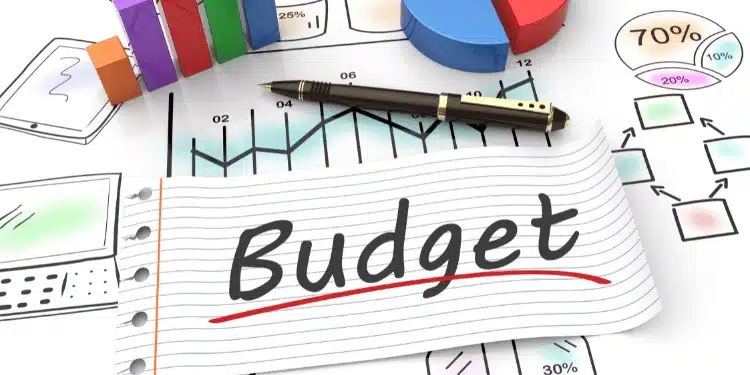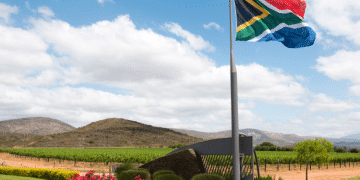South African Consumer’s Complete Guide to Financial Survival: VAT Increase and Beyond
Understanding South Africa’s Economic Landscape
South Africa’s economic landscape has become increasingly challenging for consumers due to rising inflation rates.
Recent statistics reveal a 9.1% increase in food prices and an 8.6% rise in transport costs, putting considerable pressure on household budgets.
Current Inflation Rates and Their Impact
The heightened inflation in food and transport sectors has left many South Africans struggling to make ends meet.
A 9.1% hike in food prices means that basics like bread, milk, and vegetables now cost significantly more.
Similarly, with an 8.6% rise in transport costs, commuting has become more expensive, affecting daily life and work.
Broader Implications of VAT Increase
On top of these inflationary pressures, the impending VAT increase threatens to exacerbate the situation further.
As VAT affects almost all goods and services, households are bracing for higher living costs.
This increase will likely drive up prices across the board, making it even tougher for families to manage their finances.
Taking these factors into account, proactive financial management is crucial.
Building smart budgeting habits and making informed spending choices can help lessen the effects of these economic challenges.
Next, let’s delve into strategies to create a financial safety net.
Creating a Financial Safety Net
Importance of Developing a Comprehensive Monthly Budget
Navigating the rising costs of living in South Africa requires a solid financial strategy.
Developing a comprehensive monthly budget is the first step in creating a financial safety net.
Begin by closely examining your income and all recurring expenses.
Organize your expenses into essential categories like rent, utilities, and groceries, and non-essential categories such as dining out and entertainment.
This process will help you identify where you can cut back and allocate funds more effectively.

Strategies for Analyzing Essential vs. Non-Essential Expenses
To refine your budget, you must distinguish between essential and non-essential expenses.
Essential expenses are those that you cannot do without, such as housing, food, and transportation.
Non-essential expenses might include things like streaming services, dining out, or impulse purchases.
Start by reviewing your monthly bank statements and tracking each expense. Use a highlighter or a budgeting app to mark essential expenses.
Then, look at the remaining costs and consider which ones can be reduced or eliminated.
This practice helps you visualize your spending habits and make informed decisions.
Building an Emergency Fund Starting with Modest Amounts
An emergency fund is essential, acting as a safeguard against unforeseen expenses like medical bills or sudden job loss.
Experts recommend having at least three to six months’ worth of living expenses saved up.
However, this can seem daunting, so it’s essential to start small.
Begin by setting aside modest amounts, such as R100 or R200, each month.
This may seem like a minor contribution, but it gradually builds a foundation.
Use a separate savings account to ensure the money is not easily accessible for day-to-day expenses.
Over time, as you adjust your budget and eliminate non-essential expenses, you can increase the amount you’re able to save, gradually working towards a more substantial emergency fund.
Creating a financial safety net involves careful budgeting, differentiating between needs and wants, and saving consistently.
By starting with small steps today, you can build a strong financial foundation for the future.
Smart Shopping and Expense Management
Navigating financial challenges necessitates adopting smart shopping and expense management practices.
Here’s how you can make informed decisions and stretch your rand further amidst South Africa’s rising costs.
Leveraging Sales, Discounts, and Loyalty Programs Effectively
One of the easiest ways to save money is by taking advantage of sales and discounts.
Visit your local grocery stores and retailers regularly to stay informed about their promotions.
Additionally, signing up for loyalty programs can lead to substantial savings through exclusive deals and points.
- Sales: Stay alert for weekly specials and flash sales.
- Discounts: Use coupons or digital promo codes to get immediate savings.
- Loyalty Programs: Enroll in retailer loyalty programs to collect points for discounts on future purchases.
Meal Planning and Bulk Buying Strategies to Reduce Food Costs
Weekly meal planning and buying in bulk can significantly cut down on food costs, helping to mitigate the 9.1% increase in food prices.
Tracking and Canceling Unused Subscription Services
Regularly auditing your ongoing subscriptions can free up additional funds.
Many of us forget about subscriptions that are rarely used but continue to be charged monthly.
By implementing these smart shopping and expense management techniques, you can create a more resilient financial strategy.
Keeping costs in check is just one piece of the puzzle; next, we’ll explore optimizing utility costs to further improve your financial health.
Utility Cost Optimization
As South Africa faces rising costs in multiple sectors, finding ways to optimize utility expenses is crucial.
Implementing energy-efficient practices and mindful electricity usage can significantly reduce monthly bills.
Energy-Efficient Practices
Switching to LED bulbs is an excellent way to save on electricity.
LED bulbs consume less power and have a much longer lifespan than traditional incandescent bulbs.
By making this switch, you can enjoy significant savings over time.
Furthermore, developing the habit of turning off lights and unplugging appliances when they are not in use also helps to reduce energy consumption.
Mindful Electricity Usage
Small changes can lead to significant improvements.
Adjust your thermostat to reduce energy consumption for heating and cooling.
Take advantage of natural light during the day and limit the use of heavy appliances during peak hours.
These practices will not only lower your utility bills but also support environmental sustainability.
Water Conservation Techniques
Water conservation is a crucial part of managing utility costs.
To reduce water usage, promptly fix any leaks and install water-saving fixtures, such as low-flow showerheads and faucets.
Additionally, consider collecting rainwater for garden use and try to shorten your shower times.
Implementing these measures can lead to significant savings on your water bills.
Practical Tips for Monitoring and Reducing Expenses
To keep utility costs in check, track your monthly consumption and set attainable targets for reduction.
Use utility company portals to monitor usage patterns, identify anomalies, and take corrective actions quickly.
By adopting these simple yet effective measures, you can make a noticeable dent in your utility expenses.
Smart financial habits and proactive management of resources are vital for navigating the current economic challenges.
Modern Financial Tools and Resources
Earned Wage Access as an Alternative to High-Interest Loans
With South Africa’s VAT increase and the continual rise in living costs, seeking out alternative financial solutions becomes imperative.
One such modern tool is earned wage access.
This financial tool enables employees to access a portion of their already earned wages before their scheduled payday.
This innovative solution can alleviate cash flow problems without the need to resort to high-interest payday loans.
Utilizing earned wage access helps you manage your finances more effectively and reduces the financial strain experienced during the month.
Free Financial Literacy Resources
Enhancing your financial knowledge is crucial, especially in times of economic uncertainty.
Fortunately, numerous banks and financial institutions in South Africa offer free resources to help consumers improve their financial literacy. These resources range from online articles and webinars to personalized financial advice.
Platforms such as Paymenow offer valuable information for managing monthly budgets, understanding financial products, and making informed financial decisions.
Regularly accessing these resources ensures that you stay informed and capable of handling your financial matters more efficiently.
Digital Tools for Better Financial Management
Technology provides a variety of tools for tracking and managing your finances.
By using mobile apps and digital platforms, you can effectively monitor your spending, set budgets, and reach your savings goals.
Applications like Money Dashboard and Moneysmart help you categorize expenses and notify you when you are approaching your budget limits.
By taking advantage of these digital tools, you can make informed decisions to enhance your financial well-being.
Utilizing these modern financial tools can greatly improve your financial management, helping you tackle economic challenges more effectively.
This proactive approach not only keeps you informed but also supports you in maintaining financial stability during uncertain times.
Long-term Financial Planning
Developing Sustainable Financial Habits for Ongoing Economic Challenges
In the midst of rising costs and economic unpredictability, cultivating sustainable financial habits becomes essential.
Start by regularly reviewing and adjusting your budget to reflect current expenses and income.
This practice ensures that you remain aware of your financial standing and can make informed adjustments as needed.
Prioritize saving and allocate a portion of your income to an emergency fund, even if the amount is small.
Consistency is key, and over time these savings can provide a crucial safety net.
Strategies for Maintaining Financial Stability During Economic Uncertainties
Economic uncertainties necessitate a proactive and adaptable approach.
If possible, diversify your income streams through freelance work or side businesses to reduce risks associated with relying on a single source of income.
Keep debts to a minimum by avoiding high-interest loans and managing credit responsibly.
Regularly review and re-evaluate financial goals, making adjustments to align with changes in the economic landscape.
These strategies enhance your resilience and ability to navigate financial challenges.
Importance of Continuous Financial Education and Adaptation
Financial literacy is an ongoing journey.
Utilize free resources from banks and financial institutions to stay informed about best practices and new financial tools.
Participate in workshops, webinars, or online courses to enhance your knowledge and stay informed about economic trends.
Adapting to changes and continuously educating yourself will empower you to make well-informed financial decisions, ensuring long-term stability and growth.
By adopting these practices, you can be better prepared to face economic challenges and secure a stable financial future.





